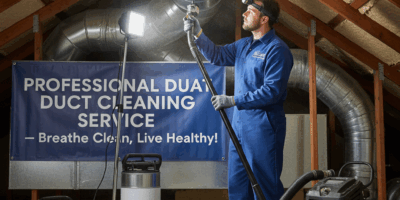How to Actually Cut Air Pollution in Your Northwest Community
Community air quality has gotten complicated with all the well-meaning but sometimes impractical advice flying around. As someone who’s worked on local environmental initiatives in the Pacific Northwest for years, I learned everything there is to know about what actually moves the needle. Today, I’ll share it all with you.
Get People on Buses and Trains

Every car you take off the road helps. The trick is making public transit actually appealing — not just lecturing people about environmental responsibility. Talk up the cost savings (parking alone costs a fortune downtown). Mention how much less stressful reading on a bus beats road rage. The environmental angle matters less to most folks than their wallet and their sanity.
Carpooling Still Works
Probably should have led with this section, honestly — it’s the easiest change to make. Rideshare apps have taken over some of this, but old-fashioned carpooling with neighbors or coworkers cuts cars on the road fast. Start a neighborhood group chat for commute coordination. It costs nothing and works immediately.
Electric Vehicles Are Getting Real

EVs used to be toys for tech bros. Now they’re legitimately practical for most Northwest drivers. Push your local government on charging infrastructure — that’s the main thing holding people back. Some cities offer purchase incentives; others need to be convinced. Either way, every gas car replaced with an EV helps.
Renewable Energy Advocacy
The Northwest already has hydropower advantage, but solar and wind keep getting cheaper. Push for local policies supporting clean energy adoption. Installing panels on your own roof sends a signal to neighbors. Community solar projects let renters and condo dwellers participate too.
Plant More Trees (But Be Smart About It)
Trees absorb pollutants and produce oxygen — everyone knows this. The overlooked part is species selection and placement. Random tree planting does less than strategic greenery near pollution sources. Organize planting events near busy roads and industrial areas, not just wherever looks pretty.
Industrial Emissions Need Watchdogs
That’s what makes community air quality endearing to us environmental types — factories and industry contribute the most but face the least social pressure. Support stricter regulations. Show up at public comment periods. Engage with local businesses about cleaner technologies. Companies respond to community attention more than you’d think.
Waste Management Matters
Burning trash releases all kinds of nasty stuff. Support recycling and composting programs. Push for single-use plastic reduction — not because it’s trendy, but because less waste means less eventual burning or off-gassing. Community cleanups keep pollutants from becoming airborne as things degrade.
Energy Efficiency at Home
Every kilowatt you don’t use is one that didn’t need generating. Energy-efficient appliances reduce power plant output. Turn off lights, insulate properly, use LED bulbs. Host community workshops teaching people how to weatherize homes and cut utility bills while cutting emissions.
Eco-Friendly Practice Adoption
Schools, businesses, and households can all do better. Reducing paper use, going digital, choosing sustainable products — these things add up across a whole community. Recognition programs motivate participation better than guilt-tripping ever does.
Clean Energy Policy Support
Local and state policy drives bigger change than individual action alone. Show up to government meetings. Vote for candidates who prioritize clean energy. Write letters supporting emissions regulations. Policy changes affect thousands of people at once.
Education and Awareness Campaigns
People can’t change what they don’t understand. Run awareness campaigns about where pollution comes from and what it does to health. Use social media, community events, school partnerships — whatever gets the message out. Informed communities make better choices.
Monitor and Share Air Quality Data
Apps and local monitoring tools show real-time air quality. Share this information so people know when to stay inside or avoid outdoor exercise. Data also builds the case for policy changes when you can show patterns and problem areas.
Encourage Remote Work
Telecommuting slashes commute emissions. Encourage local businesses to offer work-from-home options. It saves employees time and money while cutting traffic and pollution. The pandemic proved it works for many jobs.
Build Bike Infrastructure
Safe bike lanes get people out of cars. Advocate for protected lanes, not just painted gutters. Walking paths work too. Organize community bike rides to build enthusiasm. Infrastructure investment pays back for decades.
Support Local Agriculture
Food transported across the country or world generates emissions. Local farmers markets cut that drastically. Community-supported agriculture (CSA) programs connect you directly with nearby farms. Fresher food, less pollution.
Host Clean Air Events
Seminars, workshops, community cleanups — organized events focus attention and build momentum. Partner with environmental groups and bring in experts. Give people practical advice they can use immediately.
Reduce Fireworks When Possible
Nobody wants to be the fireworks killjoy, but they genuinely pollute. Advocate for reduced use or laser show alternatives during celebrations. It’s a small change that adds up across many holidays.
Engage Local Government Directly
Town halls, local boards, public comment periods — these exist for you to use them. Support candidates committed to environmental protection. Real change happens when citizens stay engaged beyond just election day.
Eco-Friendly Landscaping
Native plants need less water and no chemical fertilizers. Xeriscaping reduces irrigation demand. Organic pest control keeps toxins out of the air. Educate neighbors about maintaining yards without poisoning the environment.
Ditch Gas-Powered Lawn Equipment
Gas mowers and leaf blowers are shockingly dirty. Electric alternatives work fine for most yards. Manual push mowers handle small lawns easily. Tool-sharing programs make expensive equipment accessible to everyone.
Support Air Quality Research
University studies and research organizations need community participation. Volunteer for local studies. Share findings with neighbors. Better data leads to better solutions.
None of this happens overnight, and none of it works alone. Start small, get neighbors involved, keep pushing. Clean air takes sustained effort from lots of people making incremental changes. That’s how it actually works.



